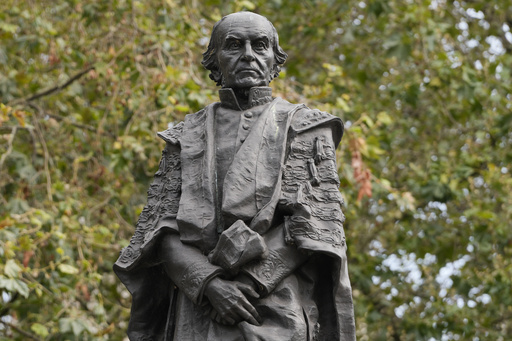
LONDON — The issue of reparations linked to Britain’s historical participation in the slave trade dominated discussions at a recent Commonwealth summit held in Samoa, where many participants hail from nations that were once British colonies.
Despite ongoing discussions, the British government has firmly stated it will not provide reparations for these historical injustices. Notably, both King Charles III and Prime Minister Keir Starmer mentioned the topic in their speeches at the Commonwealth Heads of Government Meeting, albeit indirectly.
King Charles emphasized the importance of learning from the past, stating, “None of us can change the past, but we can commit with all our hearts to learning its lessons and to finding creative ways to right the inequalities that endure.” This reflects the acknowledgment of slavery’s lasting legacy, which is deeply embedded in various institutions across Britain, including the monarchy, the Church of England, and major companies like Lloyd’s of London.
Olivette Otele, a professor specializing in the legacies of slavery at the School of African and Oriental Studies, asserted, “Britain benefited from transatlantic enslavement,” underscoring the need for more open discussions about this history. Her comments highlight an ongoing conversation regarding the lasting impacts of slavery in British society and institutions.
This issue is not new. Charles previously referred to slavery as an “appalling atrocity” during his 2021 visit to Barbados, echoing sentiments expressed during the 2022 Commonwealth summit in Rwanda, where he stated that the conversation surrounding the legacy of slavery has become urgent.
Historically, Britain’s involvement in the slave trade began in the mid-16th century, following the lead of Portugal and Spain. John Hawkins emerged as a significant figure in this early exploitation, establishing what would become the English slave trade triangle. Enslaved individuals were taken from West Africa and transported across the Atlantic to labor on British plantations in the Caribbean and the Americas, with goods being returned to England.
The Royal African Company, founded in 1672 under King Charles II and led by his brother James, gained a monopoly on the slave trade. Over its operation, this company is estimated to have enslaved around 80,000 Africans, with many dying during the arduous journey. At its zenith, Britain emerged as the leading nation in the transatlantic slave trade, forcibly relocating over three million Africans.
A movement aimed at abolishing slavery began gaining traction in late 18th-century England, driven by Quakers, some politicians, and formerly enslaved individuals. Although the slave trade was officially banned in 1807, emancipation did not occur until 1833. This abolition did not transpire smoothly; plantation owners faced significant financial loss, leading them to lobby Parliament for compensation.
The Compensation Act of 1837 resulted in 20 million pounds being allocated to plantation owners as compensation for the loss of their “property,” a sum that constituted approximately 40% of the national budget at that time. The debt from these compensations lingered until the Bank of England settled it fully in 2015.
Debates surrounding reparations have persisted for decades. The UK has yet to issue a formal apology regarding its involvement in the slave trade. Estimates suggest that financial reparations could amount to anywhere from hundreds of millions to trillions of dollars owed to the descendants of enslaved individuals. Former Prime Minister Tony Blair expressed regret over Britain’s role in the trade in 2006; however, he refrained from offering an apology or financial restitution, a stance activists believe reflects government concerns about the implications of large-scale reparations.
Calls for reparations have also come from the Caribbean trade bloc Caricom, which requests formal apologies and a repatriation program for individuals wishing to return to their ancestral lands. More recently, Bahamas Prime Minister Philip Davis has expressed the desire for an open dialogue with Starmer regarding reparations. Candidates vying for the Commonwealth Secretary-General position have all voiced support for reparative justice initiatives.
Other European countries, including the Netherlands, have begun to acknowledge their roles in the transatlantic slave trade, with some institutions in Britain also taking steps toward accountability. The Church of England has pledged 100 million pounds for projects benefiting communities affected by historical slavery, although some advocates argue this fund should increase dramatically.
Amends from descendants of slave traders have also surfaced; for example, one descendant of a 19th-century plantation owner offered an apology to Guyana, acknowledging the part his ancestor played as an absentee owner.
Despite initially seeking to steer clear of discussions on reparations, Prime Minister Starmer has recognized the importance of addressing the historical injustices that persist today. “The most effective way to maintain a spirit of respect and dignity is by working together to ensure the future is not overshadowed by the past,” he stated.
Legal experts working on reparations, like Jacqueline McKenzie, suggest that addressing the legacy of slavery is a complicated issue. “Reparations are not straightforward,” she noted, highlighting that discussions largely occur among elite circles, often excluding the voices of descendants of the enslaved.
